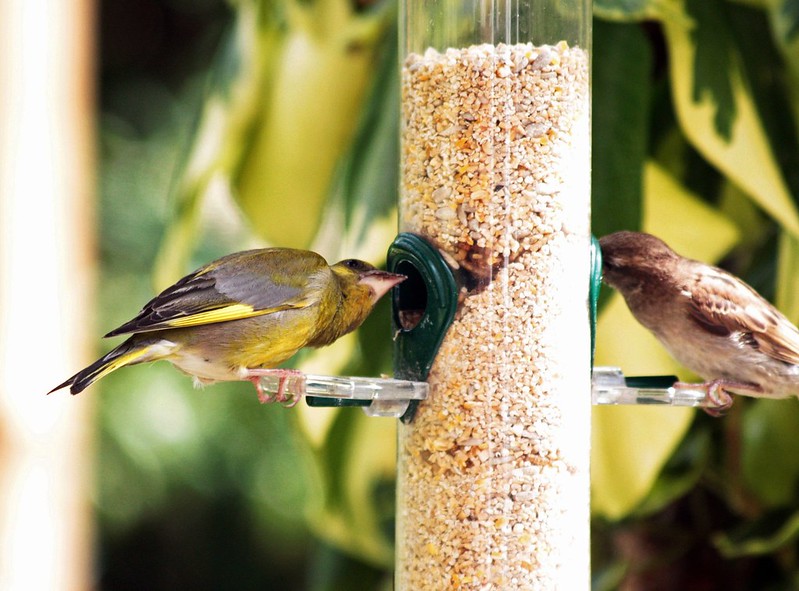New Poems by Our Contributors MORRI CREECH, ELISA GABBERT, ANNA GIRGENTI, and GRANT KITTRELL.
Table of Contents:
- Morri Creech, “The Others”
- Elisa Gabbert, “A Hermitage”
- Anna Girgenti, “The Goldfinch”
- Grant Kittrell, “Losing It”
The Others
By Morri Creech
The children that I have never had follow me, late, through the vacant corridors.
They whisper there is still time, time for the quarter moon to nock its black arrow
and let it loose toward the receding target, to bury it into the future marrow-deep.
They comb my hair by starlight, they write my name down in a thousand ledgers.
And they brush away the songs from my lips that I sing to the children they envy,
those children who occupy the pockets of air that the dead have left behind them
and who take their own places without question at the kitchen table, the children
who turn over in their sleep without dreaming yet of the dark they will return to,
who think neither of yesterday nor of tomorrow, who have begun to replace me,
those who managed to writhe from the slick ashes, waiting, waiting to be named.
A Hermitage
By Elisa Gabbert
If I lived in a cave for 500 days
I’d bring the diary of Admiral Byrd
who went to inland Antarctica alone
for a fantasy of listening to music.
It’s hard to hold the eyes still,
hard to remember the names on graves
and that these pencil underlines
in a 1940s library book aren’t mine—
It’s not my philosophy. I’m not divine
like the storied man who looked at
a red and black painting so long
he saw cyan light shining out of it.
I wonder if there is a distance between
what you want and what you wish,
and if it’s colder at night there in winter,
or what could night mean?
The Goldfinch
By Anna Girgenti
It flitted, before you arrived, between the dying honeysuckle
and the bull thistle drying in the late summer heat, looping
around a telephone wire and then pausing on the sidewalk
beside me, tilting its head,
and in that moment I was stunned
by the color of it, the brightest burning yellow
imaginable, a color I had never known or forgotten
existed, a neon flame I wanted to hold in my hand,
but it took off down the alley, bobbing through the heavy
afternoon sun and then you
were stepping out of a car,
walking toward me in that way you do, with a lilt and a rush
and we stood for a while where it had been, kissing
in the memory of it and whispering the way we do,
in reverence for the creatures of the world that call to us,
that surround us and reach into us and terrify us,
that claim their space like a blade in a mouth,
that show up and remind us with their warmth
that we are at once impossible
and flowering, in flight and still here.
Losing It
By Grant Kittrell
even the dogs know it’s time
to be still walk slow and light
into the morning seeped
in restraint finches graze
without conflict at the feeders
we hang for our pleasure no less hungry
for all they hunger but spare a seed
of regard for the storm
that will not arrive today only
more clouds only a wind
that is not quite viscous but is brave
enough to stir the chimes eventually
a groundhog will thrust her head
past the threshold of our deck
under which she has reared an entire family
without word soon enough a hunger will clover
with a vengeance and the dogs will just lose it–
what on earth did they have
to lose my silence coiling like copperhead
like thunder
Morri Creech is the author of five collections of poetry, including The Sleep of Reason, a finalist for the Pulitzer Prize, Blue Rooms, and, most recently, The Sentence. A recipient of NEA and Ruth Lilly Fellowships, as well as grants from the North Carolina and Louisiana Arts councils, he is the Writer in Residence at Queens University of Charlotte.
Elisa Gabbert is the author of seven collections of poetry, essays, and criticism, most recently Any Person Is the Only Self. Her other books include Normal Distance, The Unreality of Memory & Other Essays, and The Word Pretty. She writes the On Poetry column for the New York Times, and her work has appeared in Harper’s, The Atlantic, The Paris Review, The New York Review of Books, The Believer, The Yale Review, and elsewhere. She lives in Providence.
Anna Girgenti is a Midwestern artist and writer. She was a recipient of the 2018 Iowa Chapbook Prize from the University of Iowa. Her poetry has appeared in various print and online publications, including THRUSH, Lunch Ticket, Zone 3 Press, Harpur Palate, and Mid-American Review.
Grant Kittrell is a writer, illustrator, musician, and author of the poetry collection Let’s Sit Down, Figure This Out. His writing has appeared in a range of publications, including Terrain.org, Salt Hill, The Common, The Carolina Quarterly, Split Rock Review, The Normal School, and Gigantic Sequins, and his poetry was recently selected for inclusion in Attached to the Living World: A New Ecopoetry Anthology. Grant currently serves as the Director of the Academic Services Center and the Writing Program at Randolph College, where he also teaches English. He lives in Lynchburg, VA with his partner, Hannah, and their squirrel-crazy pups, Margot and Hap. More info at grantkittrell.com.




